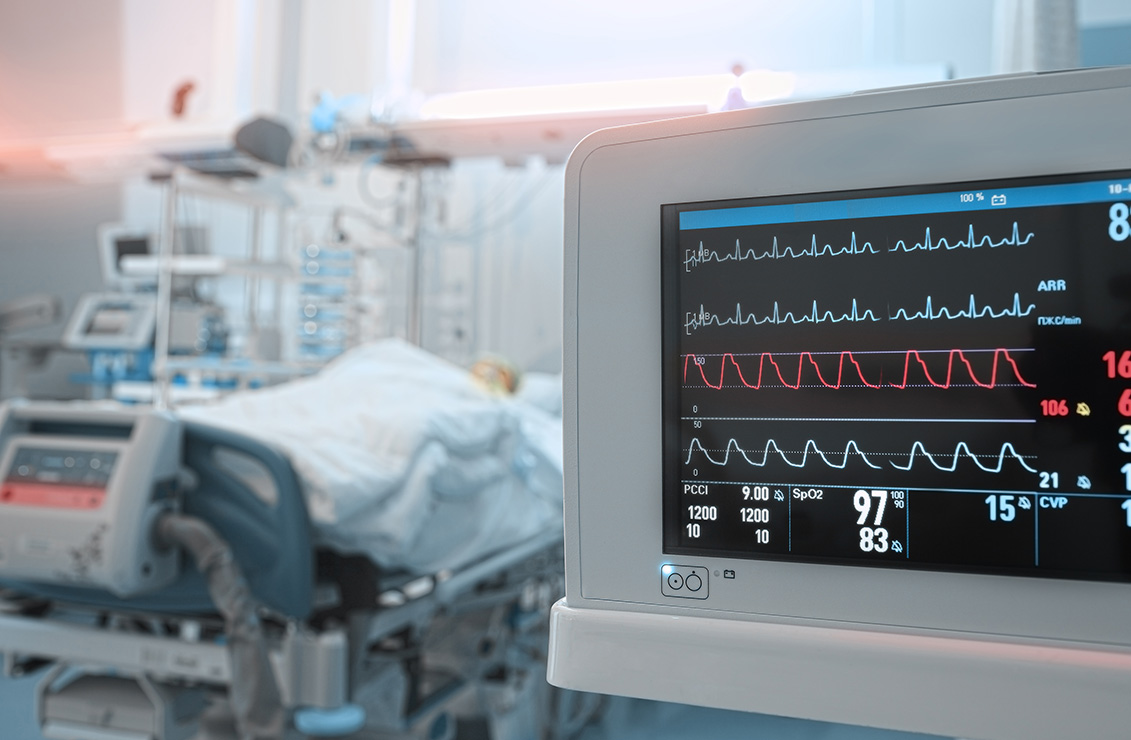Artificial Intelligence Elevates Patient-Centered Care

Artificial intelligence (AI) has been with us for close to 70 years, but practical use of AI is just beginning to find its way into the mainstream. If you’ve ever used Siri® or Alexa®, you’ve used AI. As computing power and data collection increase along with improvements in speech recognition and data analysis, AI is now finding its way into health care.
AI is helping MaineHealth solve some of its workforce challenges and provide specialized care close to home for our patients in rural parts of the state.
Improving the Patient-Provider Relationship
In the exam room, we are conducting a pilot program using Nuance Dragon Ambient Experience (DAX) which records all conversation during an office visit and then produces a clinical exam report. This allows a doctor to remain engaged with the patient, rather than typing notes throughout the appointment. Not only does this improve the patient-provider relationship, but it reduces the time providers spend completing paperwork.
“This is the first time in my career that I’ve gotten my notes done same-day.”
– Dr. Heather Schwemm, SMHC Family Medicine
Dr. Rebecca Hemphill, of Maine Medical Partners in Falmouth, led the Nuance pilot for MaineHealth and found most patients were comfortable with the use of AI, and the reports were accurate. Due to the positive feedback from the pilot, it is now being expanded to more providers.
MaineHealth Chief Information Officer, Dan Nigrin, MD, says, “The physician spends more of their time listening to and actually treating their patients rather than typing out their notes. It also helps alleviate burnout by saving what we call ‘pajama time,’ when physicians complete their notes after hours.”
“This is the single biggest innovation – finally addressing the gap between patient and physician. It is faster, more efficient and more accurate.”
– Dr. Frederick Roediger, MMP Otolaryngology
Data-Driven Care Decisions
MaineHealth’s Chief Academic Officer, Dr. Douglas Sawyer, shared how MaineHealth is collaborating with AI experts from Northeastern University’s Roux Institute to create better ways of using data from routine health care (such as cardiac monitoring) to enhance disease prediction, diagnosis and treatment.
They will use this data to build computer-based models to help guide medical decisions. These models can take various forms, such as improving accurate diagnoses, predicting future health changes, suggesting effective treatments and aiding decisions about patient care coordination within and between hospitals. This work ultimately aims to enhance overall community health and well-being.
One result of this partnership is the development of a cardiac solution that is using AI to predict when a patient may suffer an unexpected event, and allows the care team to intervene to prevent it. This and other solutions hold a lot of promise for improving outcomes across the continuum of care.
According to Susan Ahern, Vice President of Innovation at MaineHealth, this partnership between MaineHealth and the Roux Institute is exciting because, “We are bringing in technology to create our own solutions to innovate in patient care.”
Nuance DAX By the Numbers
From pilot group provider survey:
From pilot group patient survey (Percent of patients agreeing “Rate your visit compared to previous healthcare encounters”):
Leveraging Technology for Lifesaving Discoveries
At LincolnHealth in Damariscotta, patients can now have routine colonoscopies – used to prevent colorectal cancer – performed with the help of AI. The GI GeniusTM intelligent endoscopy module allows providers to provide 99.7% sensitivity in identifying polyps which may be precancerous.
“GI GeniusTM allows me to explore difficult-to-detect abnormalities which may lead to a life-saving discovery. It’s exciting to be one of earliest adopters of this technology in Maine, which can only benefit our patients,” says Samira Hasan, DO, a surgeon at LincolnHealth.
Learn more about colorectal cancer screenings at care at MaineHealth.


